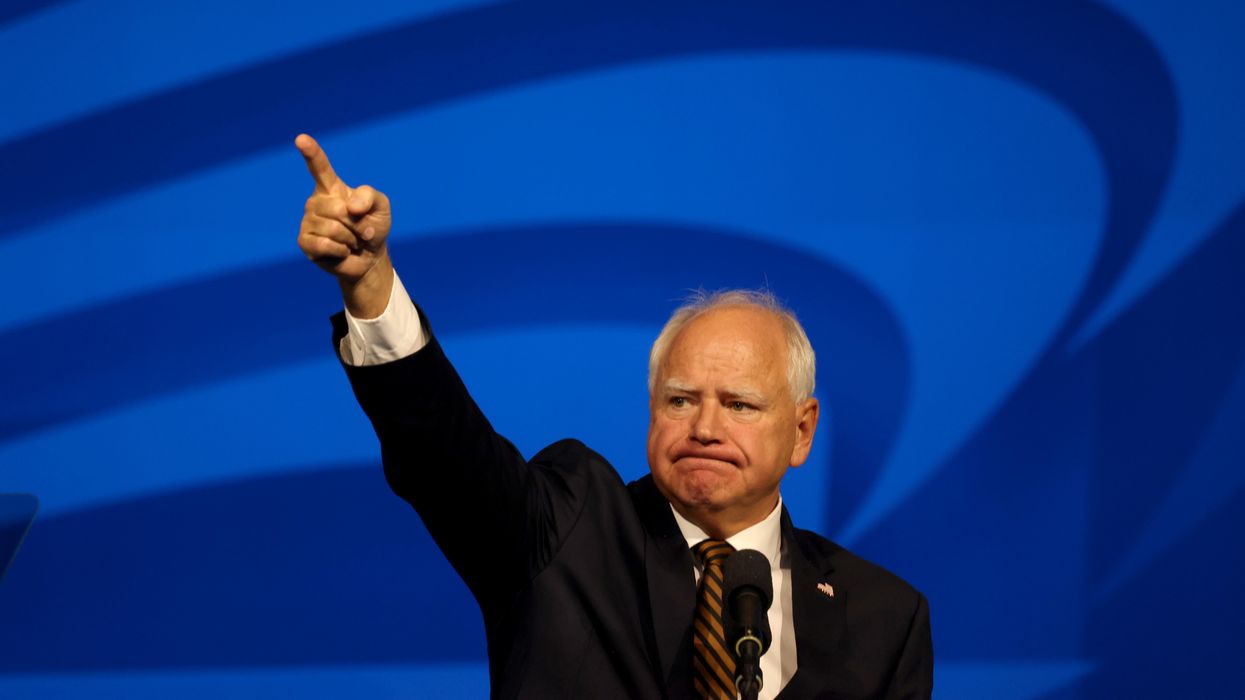Anderson edited "Leveraging: A Political, Economic and Societal Framework," has taught at five universities and ran for the Democratic nomination for a Maryland congressional seat in 2016.
Minnesota Gov. Tim Walz, Vice President Kamala Harris' running mate, is not the classic politician. The classic politician either has a law degree and rises up the electoral ranks or had great success in business or the military before shifting to politics.
But not Walz, who has been identified as a man of the people — raised on a farm, social studies teacher, high school football coach, member of the National Guard, congressman and governor.
There is an interesting parallel between these versions of politicians and two of the great movements of modern English literature — the classical tradition and the romantic tradition. In English poetry, for example, poets in the classical tradition include Alexander Pope and John Dryden. Classical poets write in strict meter and make their lines rhyme. They frequently write about major issues of politics, society, religion and country. Their poems pay tribute to order, tradition and reason.
Pope tells us in his "Epigram for Sir Issac Newton," "Nature and Nature's laws lay hid in night. God said, let Newton be! and all was light!"
The Romantic tradition, initiated by William Wordsworth and Samuel Taylor Coleridge in their collection of poems, “Lyrical Ballads,” took a major turn. Poetry, for them, had to focus on common things — the life, the feelings, the trials and tribulations — of common people. Moreover, the language of poetry must be taken from common language and not any special poetic diction. In addition, poetry needed to arise more from deep feelings than abstract thought. Thus Wordsworth wrote in the preface to the second edition of “Lyrical Ballads,” "Poetry is the spontaneous overflow of powerful feelings: it takes its origin from emotion recollected in tranquility."
Walz is best regarded as a politician in the Romantic tradition, which does not mean a politician focused on romantic love or nature but a politician who uses common language to address the common problems of men, women and children. Romanticism, it needs to be emphasized, is not restricted to Democrats. Ronald Reagan, who used common language to connect to the people, can also be regarded as a politician in the Romantic mold. Reagan certainly served in government at the state level, as governor of California, but he did not exactly work himself up the political hierarchy in the normal way before coming to Washington. Rather, he was an actor before serving as governor of our largest state.
Sen. Chris Murphy (D-Conn.) and President Bill Clinton come from the classical tradition — politicians who gain political training in the farm leagues. Most politicians do the same. They serve as county executives, state senators, attorneys general, secretaries of state — even governors — before coming to Washington.
Walz spent 20 years in the National Guard. He taught social studies and coached high school football. That path took him to Congress, and he then returned to Minnesota to become governor. His language, apart from his policy agenda, is so rooted in everyday life that he compels us to see him as a Romantic — the guy next door. (Except the guy next door is usually not a former congressman and current governor.)
The Romantic/Classical framework can only go so far when applied to politics. But it is useful. It helps us to understand a politician who speaks the language of common people and tries to resolve problems experienced by common people — whether it concerns breakfasts at school, a child tax credit, menstrual products for adolescent girls, community college tuition, a local jobs and projects plan, or paid medical and sick leave.
Walz adds a great deal to the Harris ticket. Harris, who has worked her way up the political hierarchy, brings to the race extensive education, critically important legal experience at the local, state, and federal level, and the stature that comes with being a former senator and current vice president of the United States. Harris is really built from the Classical mold.
For all of the talk about Walz bringing balance to the campaign by connecting with the Blue Wall states and middle America in general, especially white working class and middle class citizens, he also complements Harris' Classical mold. Together, they are a formidable team, Classical and Romantic components combined. They are already a source of anxiety and deep concern for the Republican ticket and the Republican Party.



















 From left to right: Gabriel Cardona-Fox, Bud Branch, Joe Concienne
From left to right: Gabriel Cardona-Fox, Bud Branch, Joe Concienne 
Trump & Hegseth gave Mark Kelly a huge 2028 gift